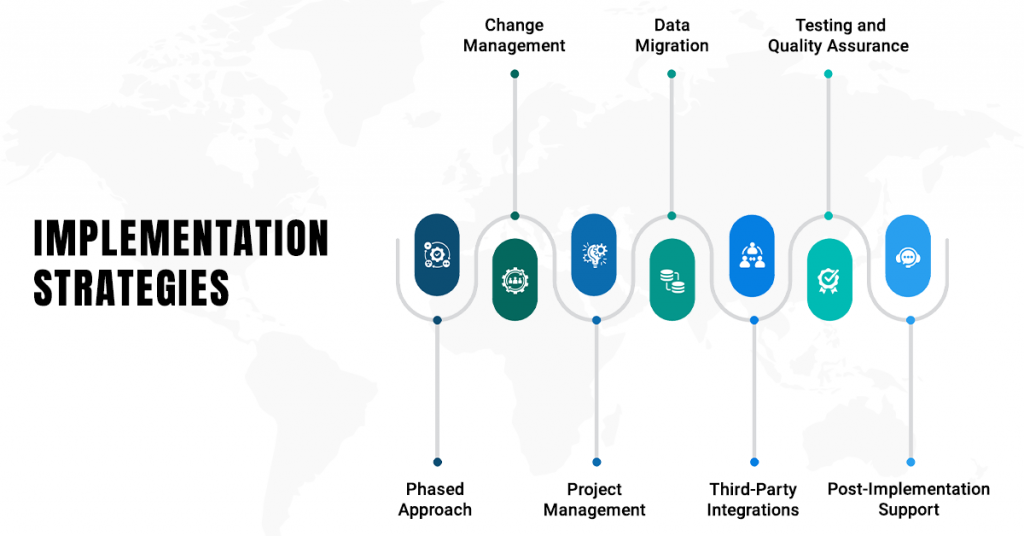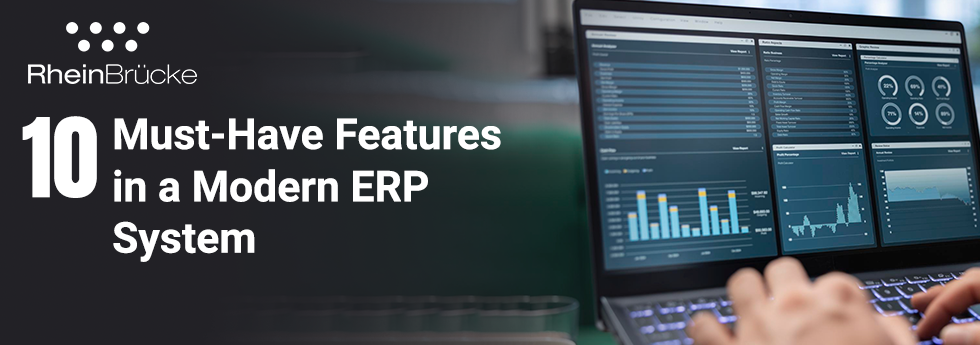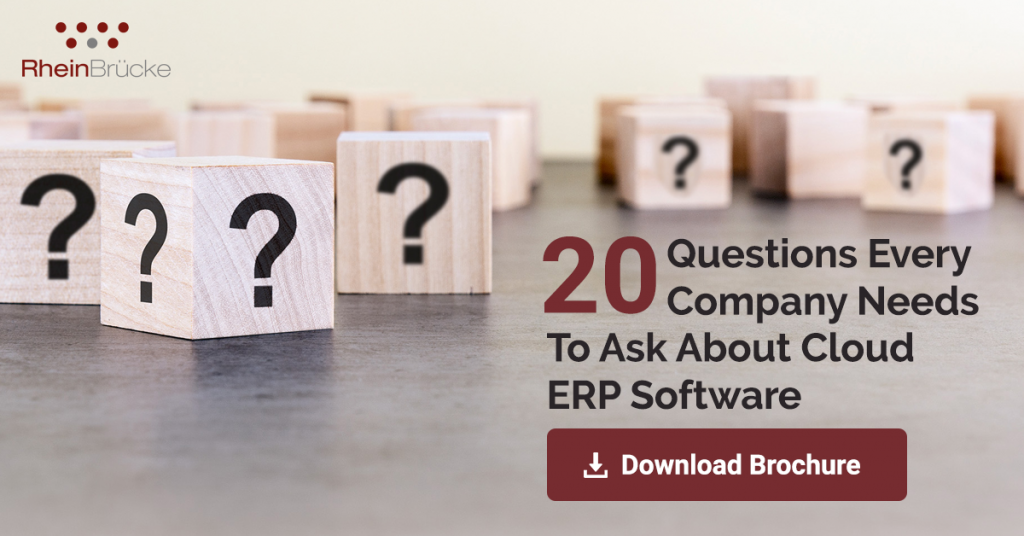
Introduction
Modern businesses demand flexibility, scalability and adaptability from their ERP systems. Traditional monolithic ERPs often fail to keep pace with evolving needs and technologies. Modular ERP architecture can give much-needed adaptability to evolve with changing business needs. Modular architecture introduces a design approach that empowers businesses to develop adaptable ERP systems suited to their unique requirements.
What is Modular Architecture in ERP?
Modular architecture involves designing ERP systems with independent, loosely integrated modules. These modules can be added or removed based on business requirements, ensuring a custom fit. This approach is particularly beneficial for integrating emerging technologies like AI and blockchain.
Benefits of Modular ERP Architecture
1️⃣Scalability: Modular ERPs grow with your business. Adding new modules for expanding operations or removing unnecessary ones keeps the system efficient and cost-effective.
2️⃣Customization: Businesses can select the specific modules they need, ensuring the ERP aligns with their unique processes and region-specific needs.
3️⃣Future-Proofing: Emerging technologies are easier to integrate with a modular ERP, ensuring the system remains relevant and adaptable.
Real-World Value of Modular Design

Integrating Emerging Technologies: AI in Modular ERPs
AI can transform ERP functionality, especially in predictive analytics. AI-enhanced ERPs analyse vast datasets to uncover patterns and predict trends, improving decision-making in inventory management, customer behaviour, and workforce planning.
The Case for Flexibility
Flexibility is paramount in a dynamic business environment. Modular ERP systems allow organizations to adapt quickly to changing needs and integrate innovative technologies. By enabling selective adoption of new functionalities, modular architecture ensures that businesses remain agile and competitive.
Challenges of Modular ERP Architecture
While modular ERP systems offer numerous advantages, there are challenges to consider.
![]() Integration Complexity: One significant hurdle is the complexity of integration, as businesses may struggle to ensure that different modules work seamlessly together, especially when integrating with legacy systems.
Integration Complexity: One significant hurdle is the complexity of integration, as businesses may struggle to ensure that different modules work seamlessly together, especially when integrating with legacy systems.![]() Higher Initial Setup Cost: The initial setup costs for Modular ERPs can be higher compared to traditional ERP systems. This is due to the need for customization, configuration, and sometimes additional.
Higher Initial Setup Cost: The initial setup costs for Modular ERPs can be higher compared to traditional ERP systems. This is due to the need for customization, configuration, and sometimes additional.![]() Vendor Compatibility Issues: Another potential challenge is vendor compatibility. Not all ERP providers offer a broad range of modules that integrate effectively with one another, limiting flexibility and cohesion
Vendor Compatibility Issues: Another potential challenge is vendor compatibility. Not all ERP providers offer a broad range of modules that integrate effectively with one another, limiting flexibility and cohesion
Despite these challenges, the flexibility and scalability of modular architecture often outweigh the initial difficulties. Doing careful evaluation of the ERP against your organizational needs can minimise the above challenges.
How to Choose the Right Modules
Selecting the right modules for a modular ERP system requires a strategic and thoughtful approach.
1️⃣Identify the key functions critical to your business, such as finance, human resources, and customer relationship management.
2️⃣Evaluate company, industry and region-specific requirements and ensure availability of appropriate modules for them.
3️⃣Assess emerging needs like artificial intelligence, IoT, or blockchain integration, which can future-proof your system.
4️⃣Consider the scalability of each module. As your business grows, you may need to add new modules, so select options that allow for easy expansion and customization.
ERP Vendors and Solutions
Several ERP vendors provide modular solutions, allowing businesses to choose the modules they need based on specific requirements. Popular providers like SAP S/4HANA, Oracle Cloud ERP, Epicor and Microsoft Dynamics 365 offer flexible modular architectures, enabling businesses to adopt new functionalities as their needs evolve. These solutions vary in terms of features, pricing, and customization options. Additionally, smaller or emerging vendors such as NetSuite and Odoo also provide modular ERP systems, often with a more cost-effective approach. Selecting the right ERP vendor depends on the industry, business size, and specific integration needs of your organization.
Implementation Approach
Successful implementation of a modular ERP system requires careful planning and execution and a strong partnership with the ERP vendor.

1️⃣Solution Mapping: Document the core modules as well as all additional modules that you need to address the organisations business processes. Validate this blueprint with all stakeholders.
2️⃣Phased Approach: Start with core modules to minimize disruption and allow for gradual adoption.
3️⃣Change Management: Prepare employees through training and clear communication to ensure a smooth transition.
4️⃣Project Management: Establish a dedicated project team to oversee timelines, goals, and resources.
5️⃣Data Migration: Plan for a seamless data migration process to ensure data integrity.
6️⃣Third-Party Integrations: Identify and integrate necessary third-party systems.
7️⃣Testing and Quality Assurance: Rigorously test the system to identify and resolve issues.
8️⃣Post-Implementation Support: Plan ahead for ongoing support and training to maximize the system’s benefits.
Cost Considerations and ROI
The cost-effectiveness of modular ERP systems lies in their ability to scale with business needs. Unlike monolithic systems, businesses can avoid paying for unnecessary features by selecting only the modules they require. While the initial setup might incur higher costs due to customization and integration, these systems can offer significant long-term savings through increased efficiency, reduced manual effort, and improved decision-making. Moreover, the ability to integrate emerging technologies, such as AI or blockchain, can further enhance the ERP system’s value. Over time, businesses can achieve a strong ROI by boosting productivity, improving customer satisfaction, and driving operational growth.
The Future of Modular ERP Architecture
The future of modular ERP is closely tied to advancements in technology. As businesses increasingly demand flexibility, modular systems will continue to evolve, integrating cutting-edge technologies like artificial intelligence, machine learning, and automation to deliver smarter, more responsive solutions. Low-code/no-code development tools are expected to gain popularity, enabling non-technical users to create and customize modules. Additionally, cloud-based ERP platforms will likely dominate, offering businesses the ability to scale quickly without investing in on-premise infrastructure. The next wave of modular ERP will be even more adaptable, intelligent, and capable of supporting increasingly complex and fast-moving business environments.
Choosing the right ERP system is crucial for the long-term success of your business. At RheinBrücke, we specialize in providing tailored ERP solutions from leading vendors. Contact us today to find the ERP solution that best fits your business needs and ensure a future-proof system that evolves with your growth.




